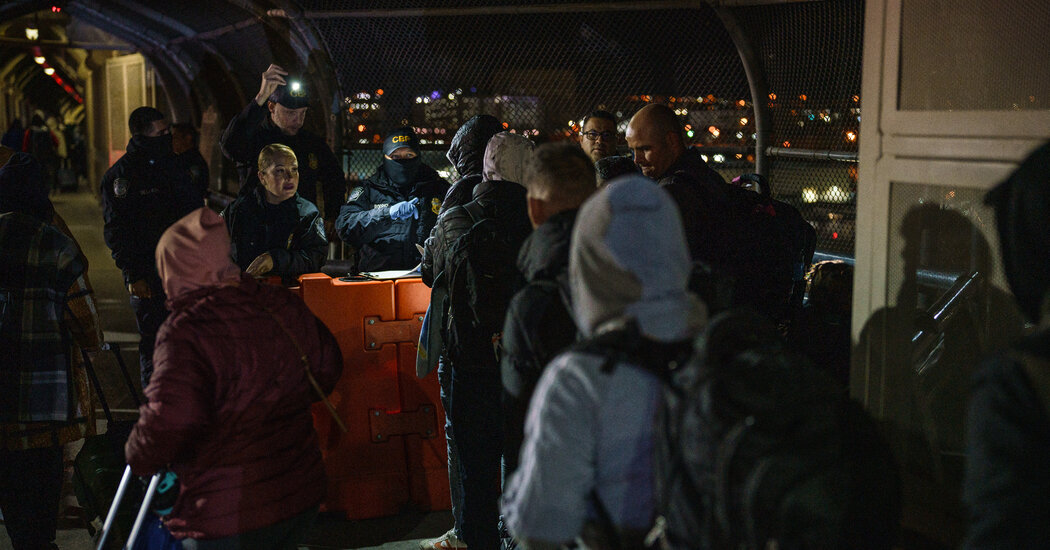
Immigrant rights lawyers on Monday will urge a federal judge in San Francisco to delay two decisions by the Homeland Security Secretary Kristi Noem that would prevent migrants from Venezuela from staying in the United States under the Temporary Protected Status program.
The legal protections allow people from troubled nations like Haiti and Ukraine to live and work legally in the country. But under actions that Ms. Noem took in February, they would begin to expire for some Venezuelans, putting nearly 350,000 people at risk of deportation as early as April, and hundreds of thousands more later this year.
At a hearing on Monday, the plaintiffs, an immigrant advocacy organization and a group of Venezuelan T.P.S. holders, will ask the judge to postpone Ms. Noem’s decisions while their case is litigated. They contend that the homeland security secretary violated administrative procedures and acted with racial bias in revoking extensions of the protections granted under the Biden administration. Federal officials have rejected the allegations of discrimination and countered that Ms. Noem was well within her authority in her actions.
The case is one of more than a dozen lawsuits that aim to curb the Trump administration’s aggressive efforts to expel millions of immigrants from the United States. As federal immigration agents have sought to ramp up efforts to deport undocumented immigrants, the White House has also revoked the legal status of hundreds of thousands of immigrants who have had temporary permission to stay, arguing that some could threaten national security.
On Friday, the Trump administration ended a different initiative, a program created under President Biden known as C.H.N.V., that allowed migrants from Cuba, Haiti, Nicaragua and Venezuela to fly to the United States and quickly secure work authorization, if they passed security vetting and had a financial sponsor.
The lawsuit in California, along with others in Massachusetts and Maryland, are attempts to stave off the Trump administration’s steps toward ending major parts of the T.P.S. program. That form of legal protection, passed by Congress and signed into law by President George H.W. Bush, is available to migrants from certain countries that have experienced national disasters, armed conflicts or other extraordinary instability.
